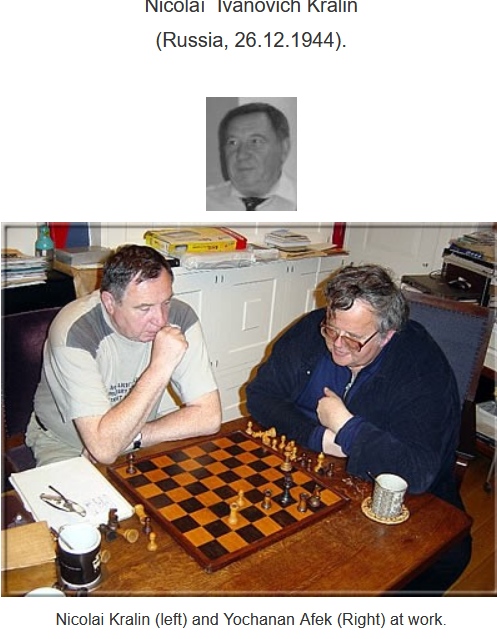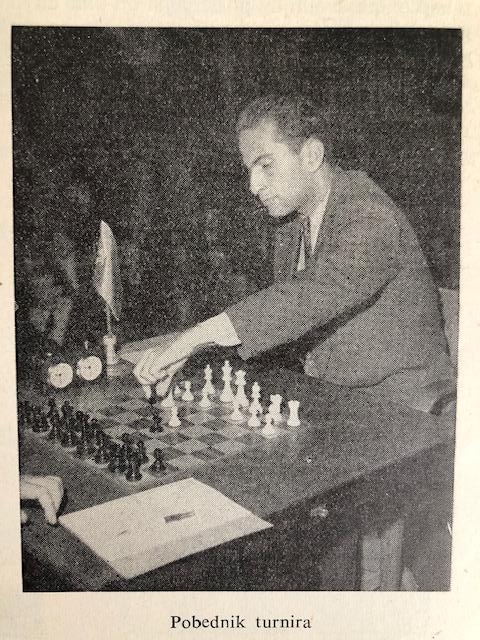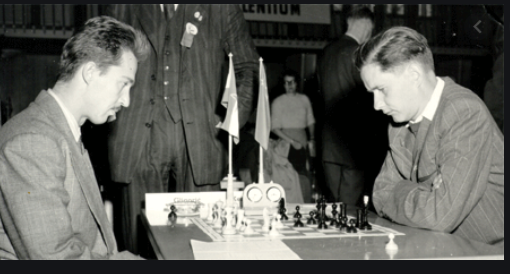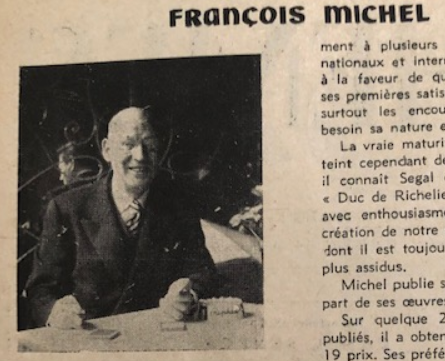For this first session of the season, a cyber sabotage deprived greffier of a connection powerful enough to participate in the Master's lecture
Pierre, who is now a regular at this form of lecture, joined Daniel to reinforce the audience.
 After an hectic summer, the regulars of the Cours de Saint-Lazare have, I hope, returned to their usual activities in complete serenity. By way of amuse-bouche, an exercise that the great O'Kelly had entitled "polygamy".
After an hectic summer, the regulars of the Cours de Saint-Lazare have, I hope, returned to their usual activities in complete serenity. By way of amuse-bouche, an exercise that the great O'Kelly had entitled "polygamy".

We had already noted, in connection with Shirov, that the computer's analysis engine, whether Houdinesque or Fritzoidal, could hardly bear to be put on the back burner in the face of tactical genius, and tried to be more Shirovian than Shirov. A tribute in the form of dynamic jealousy! Today, he does it again with Tal, discovering two Tal-like moves that Tal did not mention in his comments.
Studies and problems are often cited by people who don't understand them, which is excusable, but don't even make the effort to try, which is less so. This is of course not the case of the Dutchman Van der Heijden, himself a composer, who has given the world a collection of more than 76,000 etudes in a known format (pgn), easily usable, allowing for remarks and variants. Unfortunately, there is no equivalent in the field of problems (my collection of 8,000 problems, strictly selected, is only a modest draft).
However, he obviously could not fully verify this astronomical amount of information. It should be the role of chess sites to bring the necessary complements. Alas, they usually deal with peanuts and sometimes, like a certain French forum, wallow in a hopeless mediocrity. Today, we present a study by the great French-Ukrainian V. Halberstadt, presented in the database in question in a calamitous way: the main variation is hidden, the continuation given in its place is dualistic, two other serious errors appear in the comments. We are putting all this back in order.
Two games of the day will not be too much to start off on the right foot. One of them contains a "positional sacrifice", as they say. The expression is not very happy because a player is always interested in the "position", whether he is a tactician or a strategist. But it is a sacrifice whose interests are not immediately perceived, a sacrifice aimed at the long term, leading to a game that is "more enjoyable to play". In our example, however, time is speeding up!
 The other game illustrates what every player dreams of : a successful opening, a growing initiative, a mate attack. To achieve this against the then world number 3 seems a challenge. Note that the remarkable idea of the audience, 22 Bd3 Nxd3 23 Ne4!! seems however less striking than the continuation played, because of 23...Ne8! (this only move was the reflex of your "fake master", for once well inspired). White keeps the advantage by 24 dxe6 fxe6 25 Rf3, but less overwhelming than in the game. While the examined continuation 24 Nf6+ Nxf6 25 Qxf6 Kh7! (not Qh6?) seems to hold.
The other game illustrates what every player dreams of : a successful opening, a growing initiative, a mate attack. To achieve this against the then world number 3 seems a challenge. Note that the remarkable idea of the audience, 22 Bd3 Nxd3 23 Ne4!! seems however less striking than the continuation played, because of 23...Ne8! (this only move was the reflex of your "fake master", for once well inspired). White keeps the advantage by 24 dxe6 fxe6 25 Rf3, but less overwhelming than in the game. While the examined continuation 24 Nf6+ Nxf6 25 Qxf6 Kh7! (not Qh6?) seems to hold.

A small dose of problems to solve to get back into the swing of things. The first 2# was written by a talented French problem composer of great kindness, who more than 50 years ago welcomed a young "clampin" who arrived in the temple of composers, rue d'Argout in the 2nd arrondissement of Paris. We think we'll solve it very quickly, but... no! The other 2# is a Zago 3x3 (the initiated will understand) of Greek origin. A strange 3# from a little-known Alsatian, although often cited here in Saint-Lazare. The other 3# is the shock problem of the Ostroda Open. Good luck!
A restful 4#. Another more complex one but with a fairly predictable key, which helps a lot. The 6# is very easy, but pretty. The 7# is a bit more complex, but exciting (given at this year's Greek championship). Then some selfmates and helpmates in 2 of Ostroda's quick-show and solving-show. Finally a new masterpiece from our national GM.
In addition, we are finishing our review of fairytales that are particularly resistant to the format we were talking about. Those that will follow, in the next few courses, should on the whole be better.
See you in... not too long. May God keep you.
Add a comment